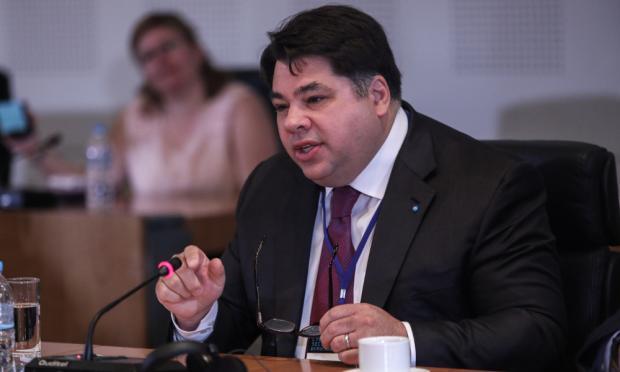Greece played a catalytic role in preventing Europe from freezing last winter, according to what US Ambassador George Tsounis said at the Economist conference.
As the US diplomat said: "Last winter there was a lot of concern about whether a number of countries in the Baltic and Europe would have the energy to have the lights on and heat homes and companies, and Greece played a very serious role. I think 30-35 % of the energy in Bulgaria in winter came from Greece."
Washington's Chargé d'Affaires in Greece pointed out, stressing his admiration for the way it is done, that Greece is rebuilding the energy landscape in Southeastern Europe and the Greeks are doing it in a way that makes energy secure (in terms of continuous supply) and environmentally clean.
At the same time George Tsounis blames the EU for having only one source of supply (i.e. Russia) and once again praised Greece saying that it plays an important role in energy security, transportation and diversification of sources (referring to the different producing countries).
"As long as Greece is exporting energy it is pulling Russia's boot from the throat of Europe and this is good for stability in the region," the ambassador said in a passage of his speech, wanting to stress Greece's pivotal role in the energy game.
Greece played a catalytic role in preventing Europe from freezing last winter, according to what US Ambassador George Tsounis said at the Economist conference.
He also gave a news report stating that in a few weeks the US will sign an MOU with Greece that will allow for a more integrated energy policy in the region.
Crises will follow one another so as things look like this will be the norm and Europe must be prepared.
George Tsounis was asked how Washington sees the 3+1 format between Greece, Cyprus, Israel and the US and said: "(The 3+1 agreements) Cyprus Greece and Israel have really come closer on everything including energy. From the US side we continue to support it not from an energy perspective but by bringing allies together."
Meanwhile the CEO of the Hellenic Hydrocarbon and Energy Resources Management Company (Hellenic Hydrocarbon and Energy Resources Management Company) Aristofanis Stefatos speaking at the Economist conference today said: "We cannot be sure until drilling takes place, but estimates show that gas reserves in the Greek territory exceed domestic demand. Consequently, exploration is not only a Greek issue but also a regional and European issue."
It should be recalled that in this energy context, Cyprus has proceeded with the reservation of an area southwest of Paphos in order to make preparations for drilling. The commitment of the area is valid from 20 October to 30 January 2024.
He also gave a news report stating that in a few weeks the US will sign an MOU with Greece that will allow for a more integrated energy policy in the region.



